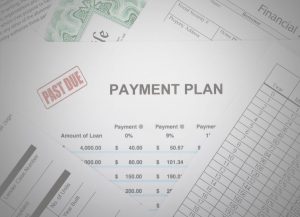One of the major disadvantages of being self-employed is the fact that employer-sponsored 401(k) plans are not available. When you work for a company that you don’t own, 401(k) plans are usually provided by that company, with great perks like contribution matching. But, retirement saving for the self-employed is possible!
However, when you are self-employed, there is no one there to match you. Retirement saving for the self-employed is something you have to take on all on your own!
When you are self-employed, you have to take matters into your own hands when it comes to saving for retirement. An IRA is available to anyone, but there are certain retirement plans that are available only to those that are self-employed.
The CGS Team is giving you a breakdown of each of those plans to help the self-employed save for retirement.
Simple IRA
A simple IRA, as the name suggests, is one of the easiest self-employment retirement plans. Similar to a regular IRA, or individual retirement account, a simple IRA allows you to contribute a certain amount of money tax-free—up to $13,000 a year.
If you work for yourself with no employees, this plan is easy to set up and contribute to regularly.
If you own a business with employees, you may be required to contribute for them as well. In this case, check with a CPA or financial adviser. Note, the contribution limits on IRAs can increase year over year, so keep tabs on the limits set by the IRS.
SEP IRA
If you make a lot more income being self-employed, then a simplified employee pension IRA may be a better fit. SEP IRAs allow you to contribute up to 25% of your salary, to a maximum contribution of $56,000.
Like the simple IRA, if you have employees working for you, you may have to make contributions for them as well. Visit irs.gov for more information on how to calculate your net income.
Solo 401(k)
The last retirement option for the self-employed is the solo 401(k), also known as the individual 401(k). This retirement plan allows users to contribute up to $19,000 a year. The rules are very complex for this type a plan, so consult a CPA to see if you or your business will qualify for it.
Related: How to Determine What You Need to Save for Retirement
Regular IRAs only allow users to contribute up to $6,000 a year, so if you are self-employed and want to save more for retirement, definitely consider one of the 3 options listed above. Companies like Fidelity and Merrill Lynch are common for setting up IRAs and 401(k) plans.
Is your only source of income through self-employment? If so, what are you doing to save for retirement? Leave a comment below to let us know!





